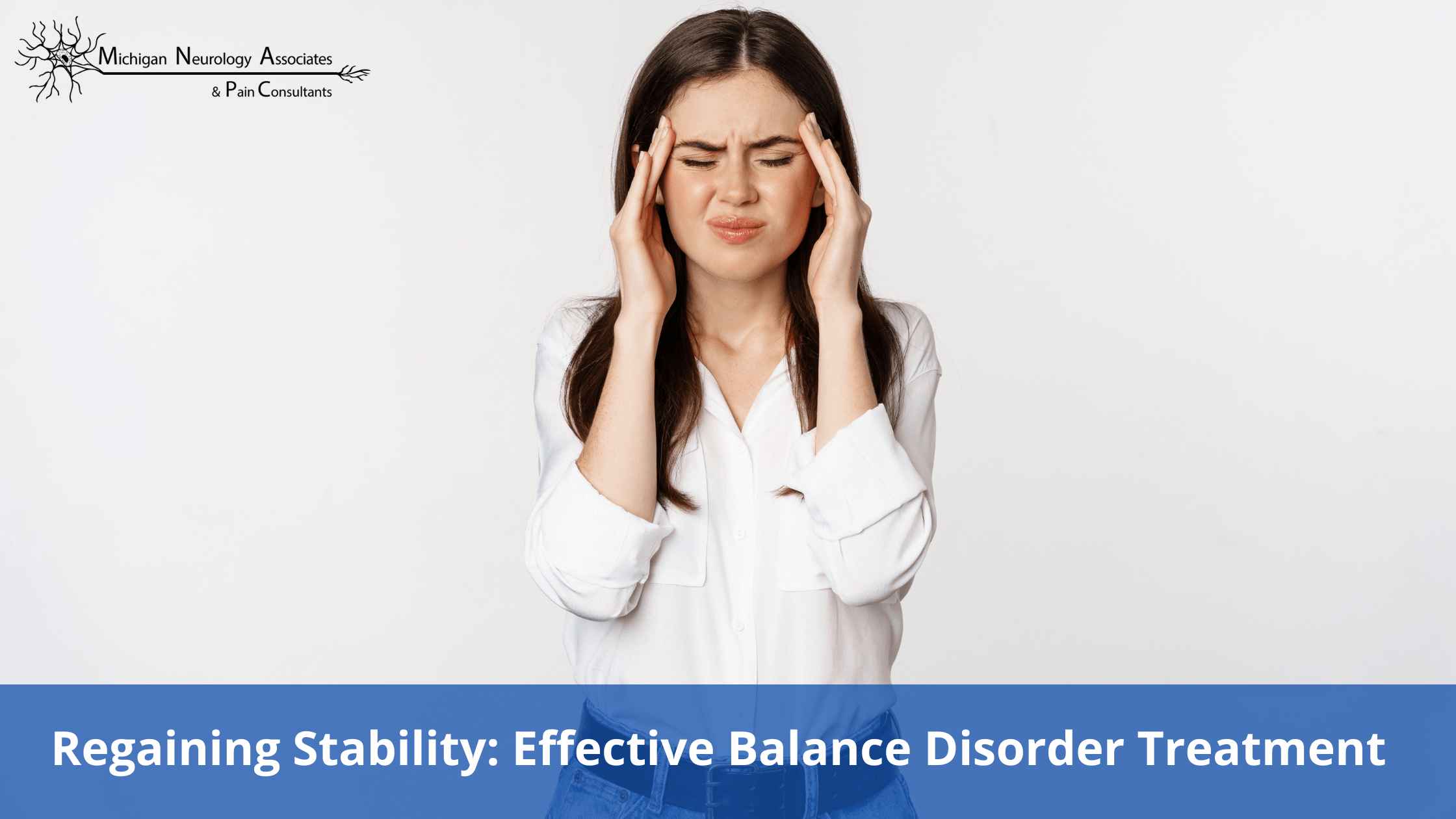Do you often feel dizzy, as if everything is spinning around you? Does this happen irrespective of whether you are sitting, lying, or standing? Do you sometimes feel unsteady and lightheaded too? If your answers are yes to most of the questions above, you might have balance disorder problems.
Balance disorders happen when there is a disconnection between the brain and the central nervous system in your body. Balance disorder issues impact daily life drastically as movements and mobility become restricted. There is a constant feeling of spinning and falling, which is quite inconvenient and can be disruptive in your daily life If you, or someone you know, is suffering from balance problems, in the article, we will discuss everything about the disorder, from signs and symptoms to managing it effectively.
Common Types of Balance Disorders
There are different types of balance disorders caused by various factors. Below are some of the common types:
- Vestibular disorders – Vestibular disorders are abnormalities in the inner ear. These can cause a heavy head, a floating sensation, and a feeling of unsteadiness in the dark.
- Labyrinthitis – This is one of the common balance disorder issues in the ear. In labyrinthitis, there is inflammation in the labyrinth, an integral part of the inner ear system responsible for balance and hearing. Hence, inflammation in this part of the ear causes balance disorders.
- Meniere’s disease – Meniere’s disease causes severe and sudden vertigo (a spinning sensation). It can also cause buzzing or ringing in your ears, fluctuating hearing loss, and a feeling of fullness in the ear.
- Benign paroxysmal positional vertigo (BPPV) – Calcium crystals in the inner ear help in controlling balance. In BPPV, the crystals are dislodged from their normal position and move to different areas in the inner ear. This leads to a spinning sensation when tilting the head up to look back or while turning in bed.
Causes and Symptoms of Balance Disorders
Many causes can lead to balance disorder problems. Some of the causes are as follows:
- Inner ear problems
- Brain and nervous system problems
- Anxiety or panic
- Vision problems
- Postural hypotension
- Joint and muscle problems
- Numbness
- Dehydration
- Various kinds of medications, etc.
The symptoms of balance disorder problems are quite pronounced and easy to detect. Some of the most prominent signs of balance disorder include:
- Sudden vertigo or sense of motion – You might have sudden vertigo or a sense of moving even when lying down.
- Unsteadiness or loss of balance – Your feet might seem unsteady when moving, making you feel out of balance.
- Light-headedness (presyncope) or feeling of faintness – Your head might feel extremely light, and you might feel like passing out or fainting.
- Dizziness or feeling a floating sensation – You might feel dizzy or have a floating sensation, making you feel light.
- Feeling that you might fall – This is one of the scariest signs as you feel like you might fall when you move or stand up.
- Confusion – You might feel confused and puzzled, not being able to process information properly.
- Nausea – Balance disorder issues in the ear often cause a nauseating feeling, especially when you are moving.
- Vision changes – You might experience vision changes, including blurriness.
Tips for Managing Balance Disorder Problems
There is no specific treatment for balance disorder issues, but there are ways in which the problem can be managed. Here are some tips for managing balance disorder problems:
#1: During an attack
When you sense a balance disorder problem attack coming on, do the following:
- Lie down and rest
- Avoid moving your head too much
#2: At other times
Healthy lifestyle habits, as mentioned below, can help you to manage balance disorders successfully.
Try balance retraining exercises such as tai chi, vestibular rehabilitation therapy, strengthening and resistance exercises, and so on.
Work on reducing stress levels with meditation, yoga, psychotherapy, and medications (if needed).
- Take care of your overall health
All the body parts are impacted by balance disorder. Therefore, you must take good care of your overall health by following a healthy diet and lifestyle. Avoid smoking and drinking too much.
#3: Safety precautions
To help in preventing falls caused by balance disorder, you can do the following:
- Have better lighting throughout your home
- Place handrails wherever possible
- Remove hazardous objects like slippery rugs, sharp items, and so on that can prove dangerous
Take the First Step Towards Regaining Stability Today!
Never ignore balance disorder problems, as the underlying causes might lead to serious issues in the future. Consult a Specialist for Your Balance Disorder Treatment at the earliest to diagnose the root cause of the problem and start treatment.
Michigan Neurology Associates & Pain Consultants have the best neurologists, pain management specialists, and psychologists on their team. They offer solutions for various neurological issues, including balance disorder problems. Contact us today to learn more about our services.



